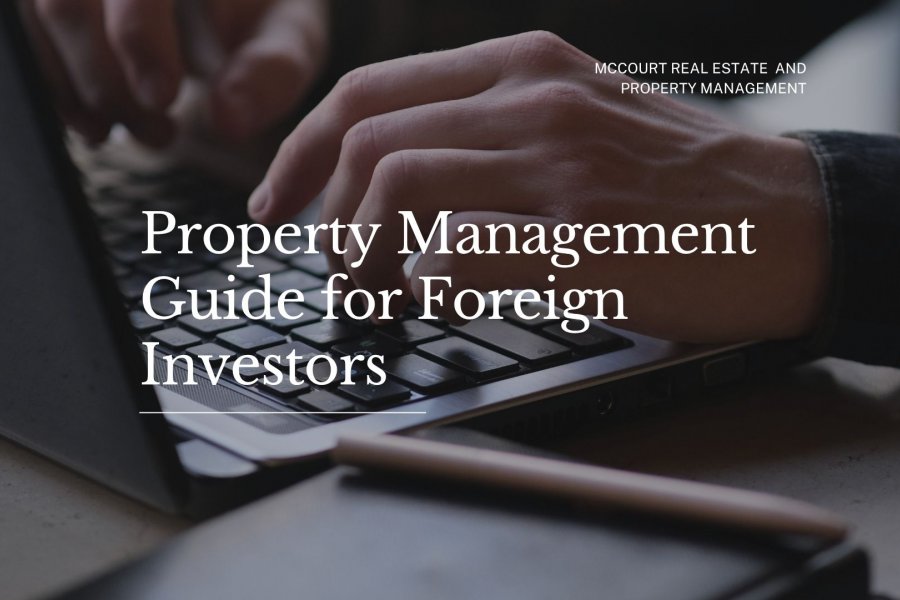
- Preparation is everything – Foreign real estate investing can be rewarding, but success depends on researching local markets, laws, and tax obligations.
- Leverage tools and talent – Technology and reliable local professionals make it possible to manage properties abroad effectively and securely.
- Plan for the long game – With the right strategy, compliance, and support, foreign investors can reduce risks, maximize ROI, and build lasting wealth.
Have you always dreamt of investing in real estate in another country?
Why not go for it?
Investing in foreign real estate can be an exciting and rewarding venture for investors seeking to diversify their portfolios and build long-term wealth. Owning property abroad can provide benefits such as potential appreciation, rental income from local or vacation tenants, and even personal perks like having a vacation home.
For many, this is the perfect way to achieve financial growth while also enhancing their current lifestyle.
However, buying property abroad also comes with a unique set of challenges and risks, including unfamiliarity with the local laws, high taxes, language barriers, and management difficulties. Without proper preparation, these issues can turn a good opportunity into a costly mistake.
That’s why understanding how to navigate the process is crucial.
In this guide, the team at McCourt Real Estate & Property Management will break down everything you need to know about foreign real estate investment, helping you minimize risks, maximize returns, and approach your venture with confidence.
Are you a first-time landlord? Before reading this guide, check out what you need to know before leasing your home.
LOOKING TO GROW? VIEW OUR INVESTOR RESOURCES
Maximize Your ROI: Property Management Strategies for Global Investors
Purchasing foreign real estate can be a great investment. Some markets have higher property values, making it easier to invest in high-end properties. Some others may come with higher property prices, but higher appreciation and earning potential.
If you’re a foreign investor looking to buy U.S. real estate, then keep reading! Here are five tips to help you make the most out of your investment:
1. Research the Local Market
A country’s real estate market is never uniform. Large countries, like the U.S., offer numerous opportunities, but profitability varies significantly by region, state, and even city.

While some areas may experience high rental demand and strong appreciation, others may face economic stagnation or oversupply. Before investing in foreign real estate, you should take the time to research the country’s overall economy and then narrow down to specific markets.
Look into job growth, population trends, rental demand, tourism potential, and local property laws. For example, a city with a booming tech industry or strong university presence is more likely to deliver consistent rental income than a region with declining employment.
By familiarizing yourself with the nuances of each area, you’ll be better equipped to choose a location that aligns with your goals and maximizes long-term profitability.
2. Familiarize Yourself with the Local Real Estate Laws
Real estate laws regulate nearly every aspect of owning and managing property, from how the property is purchased, what taxes apply, how to deal with tenants, and even how landlords can enforce leases or pursue evictions.
Without this knowledge, foreign investors risk legal issues, unexpected costs, or even losing their investment.
Before investing in foreign real estate, you should take the time to familiarize yourself with the country and state’s real estate laws.
Some key areas to research include property ownership rights (especially in countries where foreigners face restrictions), landlord-tenant laws, rent control policies, zoning regulations, and tax obligations on rental income and capital gains.
It’s also crucial to understand eviction procedures, security deposit rules, and local building codes.
HAVE A QUESTION ABOUT REAL ESTATE LAWS? ASK A PROPERTY MANAGER TODAY
3. Understand Your Tax Obligations
No matter the country they come from, all investors have to comply with tax regulations. These may include income taxes on rental earnings, capital gains taxes when selling, and property taxes.
Moreover, in some cases, investors may be subject to taxes both in their country of residence and the country where their investment is located. Failing to uphold your tax obligations can result in hefty fines or serious legal issues.
If you’re planning to invest in U.S. real estate, here are some key things you should know about tax obligations for foreign investors:
- Rental income in the U.S. is taxable. For foreign investors, earnings from U.S. rental properties are subject to a 30% withholding tax on the total gross income.
- Foreign investors must file a U.S. tax return (IRS Form 1040-NR for individuals, or 1120-F for corporations).
- When foreign investors sell U.S. real estate, the Foreign Investment in Real Property Tax Act (FIRPTA) requires the seller to withhold 15% of the property’s gross sales price and send it to the IRS as a prepayment on the gains from the sale.
- State and local taxes may apply in addition to federal taxes. You must familiarize yourself with the local regulations in the state you’re investing in.
- Tax treaties may reduce or eliminate certain obligations. For example, some treaties lower the withholding tax rate on rental income from the standard 30% to a reduced percentage, while others may exempt certain types of income altogether
- Deductions, such as mortgage interest, depreciation, and expenses, can lower taxable income and increase your cash flow.
4. Make Use of Technology
Thanks to modern technology, it’s now possible to manage an investment property completely from afar.

Cameras, smart locks, and high-quality security systems allow you to keep the property safe at all times.
Moreover, property management software makes it easy to request and monitor rent payments, communicate with tenants, receive and handle maintenance requests, share important documents, and keep track of expenses easily and fully remotely.
By leveraging technology, you can seamlessly manage your rental from abroad.
5. Partner with Reliable Local Professionals
Having a pair of eyes and hands on the ground is crucial when managing an investment property from abroad.
After all, you need someone who can respond quickly in case of an emergency.
Building a good relationship with local contractors, for example, ensures that you always have someone to call if maintenance issues or emergencies arise. However, this is not enough. It’s also a good idea to partner with a local property management company.

A company like McCourt Real Estate & Property Management can become an invaluable partner. We can help you with anything from finding the perfect property to invest in to marketing and managing the unit.
Our expertise can help you avoid common pitfalls, ensure legal compliance, protect your investment, and maximize your ROI.
Read our next blog post to learn more about why successful real estate investors partner with property managers .
LEARN WHAT OUR CLIENTS HAVE TO SAY ABOUT US
Bottom Line
Investing in foreign real estate can be an exciting and profitable experience, but success heavily depends on your preparation and knowledge.
From taking the time to understand the local market and real estate laws to learning how to navigate complex tax obligations, foreign investors must be proactive and strategic.
By doing thorough research, building a trusted professional network, and staying compliant with regulations, you can reduce risks and maximize returns.
Looking to invest in Midland, Texas, or the surrounding areas? Contact McCourt Real Estate & Property Management today!
Next Post: Landlords, are you struggling to market your property? Read out how-to on filming a video tour of your rental.